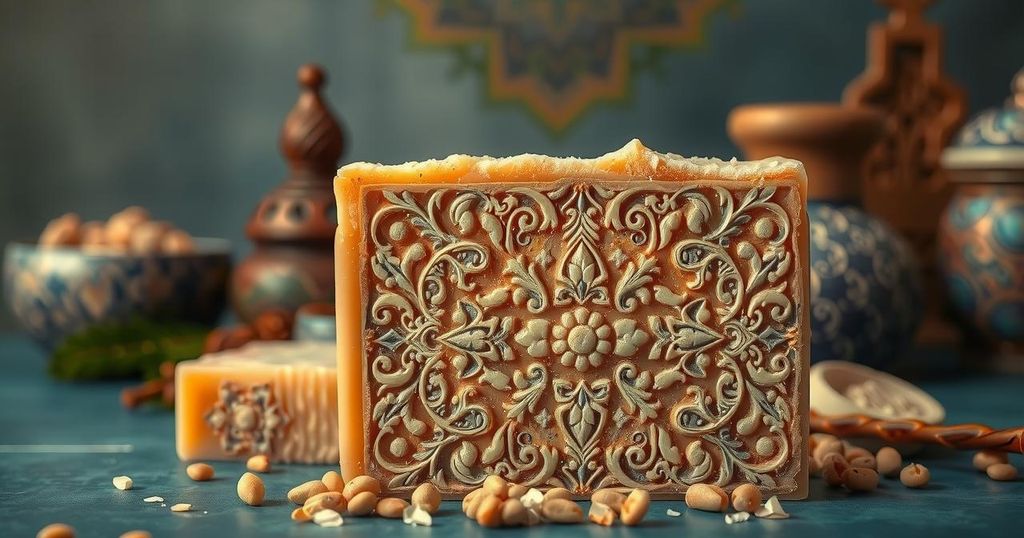UNESCO has added Aleppo soap to its intangible cultural heritage list during ongoing conflicts in Aleppo. This traditional soap, made from olive and laurel oils for 3,000 years, showcases artisanal skills that reflect the city’s cultural identity. Only about 10 soap factories remain operational due to war, but the production process promotes community unity among families involved.
The United Nations Educational, Scientific and Cultural Organization (UNESCO) has added Aleppo soap to its prestigious list of intangible cultural heritage, coinciding with the ongoing conflict in Syria’s second-largest city. Artisans in Aleppo have been producing this traditional soap from olive and laurel oils for approximately 3,000 years. The soap-making process, which involves hand-cutting and stamping the cooled mixture, exemplifies a rich historical craftsmanship. Currently, only about 10 out of the original 100 soap factories remain operational in Aleppo, following a significant decline caused by the war that led many manufacturers to seek refuge in other regions such as Damascus or neighboring Turkey. The collaborative nature of this production fosters community cohesion, according to UNESCO, which previously recognized Aleppo’s traditional music as part of its cultural heritage.
Aleppo soap, a product renowned for its unique properties, has been an integral part of Syrian culture for centuries. The city of Aleppo was designated a UNESCO World Heritage site in 1986, yet it has faced severe threats due to ongoing conflict since the outbreak of Syria’s civil war. Despite the war’s destruction, traditional practices continue to endure, highlighting the resilience of local artisans and the cultural significance of their craft. This addition to the UNESCO list aims to protect and promote Aleppo soap as an important element of Syria’s cultural identity amidst the challenges posed by conflict.
In conclusion, the recognition of Aleppo soap by UNESCO underscores the importance of preserving cultural heritage, particularly in conflict-affected regions. This acknowledgment serves as a reminder of the rich traditions that continue to thrive despite adversity. The soap-making craft not only symbolizes a longstanding artisanal legacy but also contributes to community unity among the remaining artisans. The plight of Aleppo and its cultural expressions though fraught with challenges, stands resilient as a testament to human creativity and endurance in the face of war.
Original Source: jordantimes.com






